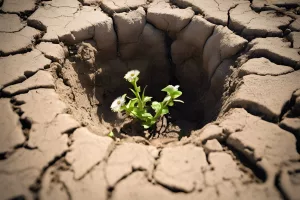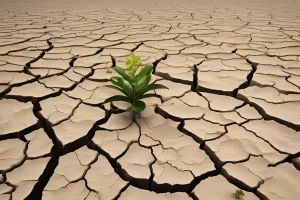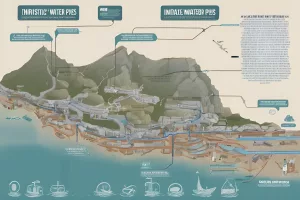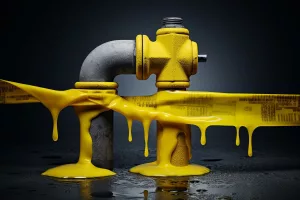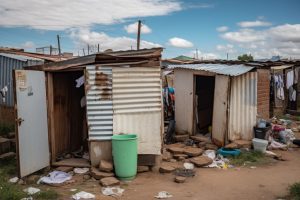Cape Town is facing a big challenge with water shortages, but it’s fighting back with a new desalination plant that will turn seawater into clean drinking water. This plant is part of a larger plan to secure the city’s water supply and involves the community in making important decisions. By producing 50 to 70 million liters of water every day, Cape Town hopes to ensure everyone has access to this vital resource. As the city moves forward, it aims to be a shining example of how to tackle environmental challenges while keeping its diverse communities in mind.
Johannesburg faces a serious water crisis, with planned outages in early October for crucial repairs to the Honeydew reservoir pipe. This shutdown from 8 AM to 8 PM will affect many neighborhoods but is necessary to ensure better water service in the future. To tackle the high demand and waste, Rand Water has also introduced Level 1 restrictions, urging residents to conserve water by limiting gardening and cleaning activities during the day. The community is stepping up, sharing tips on saving water and coming together for local initiatives, showing that everyone can play a part in protecting this precious resource.
Mexico City and Bogota are facing an ecological crisis called ‘Zero Hour’ due to an El Niñoinduced drought that is quickly draining their water reserves. Both cities could hit ‘Zero Hour’ by June unless drastic reductions in water usage are made. Cape Town’s success in managing a similar crisis serves as a glimmer of hope, but the responsibility to act decisively and responsibly lies with both city officials and residents. The situation is being exacerbated by a ‘heat dome’ created by El Niño, and potential solutions include investing in desalination plants and utilizing underground aquifers.
Fervent Endeavors Towards Water Security in Hout Bay and Llandudno: A Comprehensive Examination
Hout Bay and Llandudno are addressing their water crisis through a comprehensive pipe replacement program and emergency measures. The local government has committed R836.6 million for pipe replacement, with 3,300 meters already replaced. First Level Responder and maintenance teams conduct urgent repairs and replace sections of pipes to prevent pipe bursts. The community’s resilience and support are crucial in dealing with these shortterm disruptions. Despite the challenges posed by the geographical setting and aging infrastructure, the collective fortitude and steadfast fellowship of the community demonstrate their unwavering spirit in overcoming the water crisis.
South Africa is facing a severe water crisis with twothirds of the country’s watersupplying municipalities unable to provide clean drinking water to their inhabitants. Efforts to resolve the issue are hindered by bureaucratic red tape, leaving the Department of Water and Sanitation unable to directly address the problem. The proposed Water Services Amendment Bill aims to give the department the power to issue orders to noncompliant municipalities, but doubts remain about its potential impact. The department has filed criminal cases against polluting municipalities, but harsher punitive measures may be needed to ensure compliance.
South Africa is facing a water crisis, with nearly half of all water supply systems posing health risks due to bacterial contamination and over 47% of clean water lost through leakage. The country’s water infrastructure urgently needs an additional 400 competent individuals to manage the deteriorating systems. With a dire need for skilled personnel to operate stateoftheart facilities and mitigate human health risks, immediate steps must be taken to improve the poor quality of drinking water and increase monitoring and accountability.
The ongoing water crisis in Western Cape communities has been marked by incidents of water infrastructure sabotage and allegations of fraud, maladministration, and corruption. The recent sabotage incident left two towns without water for nearly two weeks, with the Matzikama Municipality filing charges for deliberate property damage. The crisis highlights the importance of protecting critical infrastructure like water resources and the need for heightened vigilance and collaboration between government agencies and the public to preserve vital services.
The South Coast of KwaZuluNatal, famed for its scenic beaches and verdant countryside, has been grappling with an acute water crisis for the last 18 months. The shortage of consistent water supply has led to disastrous consequences for the area’s travel, tourism, and hospitality industries.
Deputy Minister of Water and Sanitation, Ms. Judith Tshabalala, and the South African Female Riders Forum demonstrated an extraordinary act of kindness by donating 1.5 million litres of water to the community of Hammanskraal. The area is currently facing a cholera outbreak and severe water shortages, making this contribution critical.
The cholera outbreak in Hammanskraal has brought to light the ongoing water and sanitation crisis in South Africa. The lack of access to safe and reliable water and sanitation services has been a persistent issue in the country, affecting millions of people.
The water and sanitation crisis affecting several towns in South Africa has led to broken pipes and maintenance holes, causing severe sewage issues that impact the lives and health of thousands of residents. This crisis is evident in towns like Sannieshof, Ottosdal, and Delareyville, where raw sewage has flooded parts of the local cemetery and forced some households to avoid using their toilets due to backflows from the blocked sewerage system.


